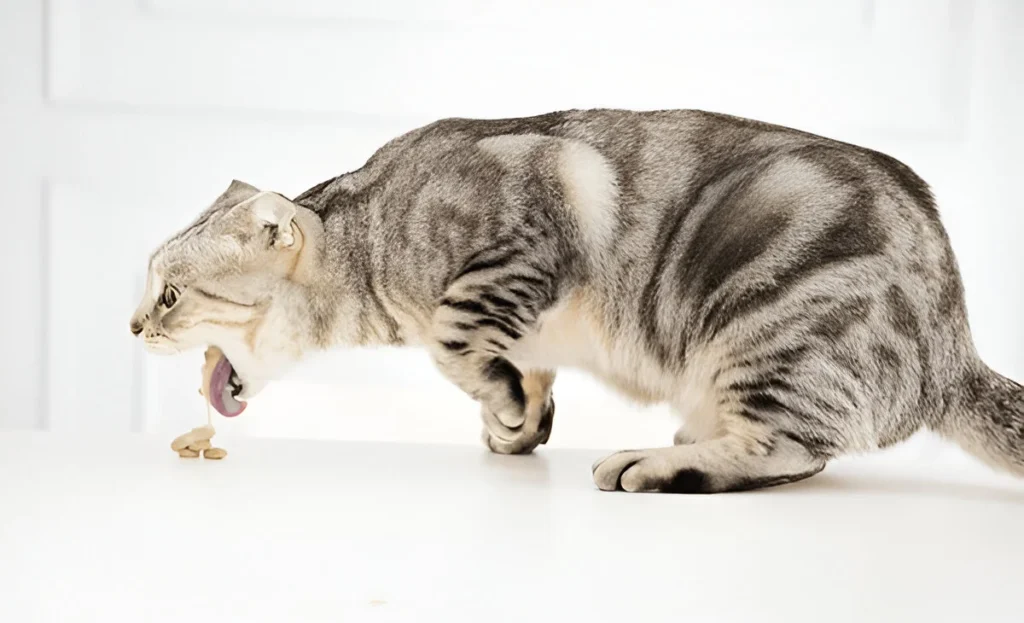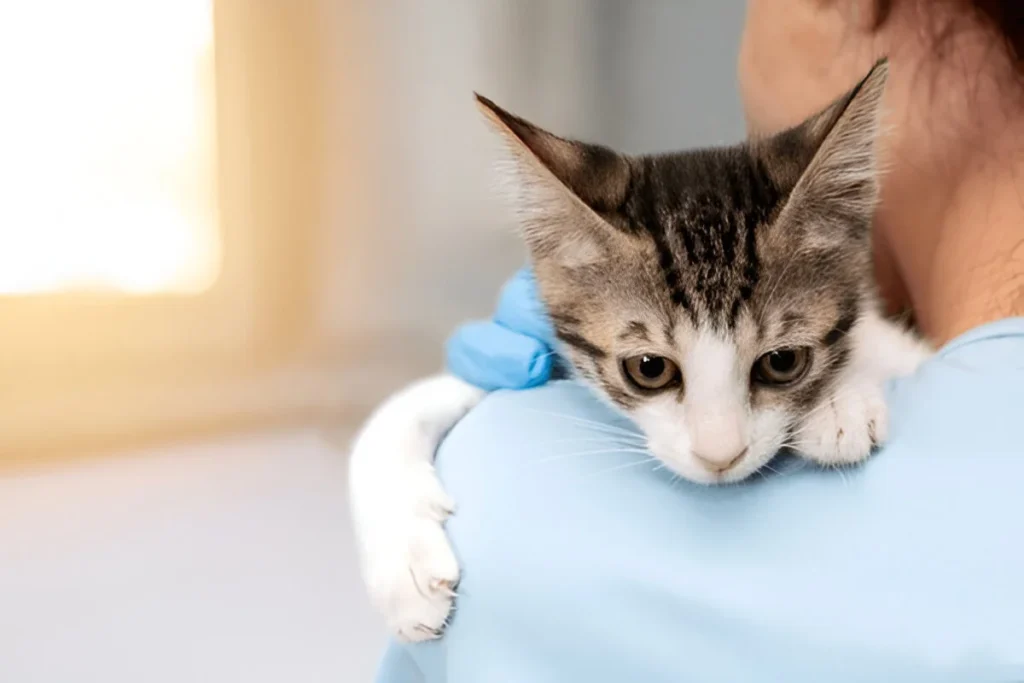-
Kutchina service center, Kolkata - 700010
Kutchina service center, Kolkata - 700010

Cat Vomiting Signs can indicate serious health risks. Learn how timely care from a reputed Pet Clinic ensures your cat’s safety and wellbeing.
Vomiting in cats is not unusual. A hairball after grooming or an upset stomach from eating too quickly may not seem alarming. But at times, vomiting can signal something far more serious. For pet owners, recognizing when to seek help can make a life-saving difference for their feline companions.
This guide explores how to differentiate between harmless and concerning cat vomiting signs, when to consult a veterinarian, and the steps you can take to keep your furry friend healthy.

Vomiting is the body’s natural reflex to eliminate unwanted substances. Cats may throw up for reasons as simple as:
However, persistent or severe vomiting may point to underlying health issues that require veterinary care.
Some vomiting episodes can be resolved with minor changes:
While these causes are usually harmless, monitoring frequency is essential.
Knowing when vomiting becomes dangerous is crucial. Look for these warning signs that demand veterinary attention:
If vomiting continues for days or occurs regularly, it may indicate conditions such as:
At this stage, immediate veterinary evaluation is critical.

A single vomiting episode may not be alarming, but repeated or severe vomiting can quickly dehydrate a cat. Contact a vet without delay if your cat:
Early intervention not only reduces complications but can prevent life-threatening emergencies.
When a cat is brought in for vomiting, veterinarians follow a systematic approach:
While waiting for professional care, you can take these supportive steps:
Avoid giving human medications—many are toxic to cats.
Pet owners can reduce the chances of vomiting episodes with a few preventive measures:
If your cat experiences persistent or severe vomiting, expert veterinary care is essential. Local pet clinics with modern diagnostic tools and experienced veterinarians provide not only treatment but also preventive guidance.
One such trusted name is APC Pet Clinic, widely regarded as the Best Pet Clinic in Kolkata, recognized for compassionate care and advanced treatment options. They specialize in identifying the root cause of cat vomiting signs, ensuring that cats receive timely medical attention and long-term health support.

Q1. How do I know if my cat’s vomiting is serious?
If it’s frequent, contains blood, or is accompanied by lethargy, weight loss, or refusal to eat, seek veterinary help immediately.
Q2. Can food allergies cause vomiting in cats?
Yes, cats with dietary sensitivities may vomit frequently. A vet can help identify allergens and recommend a safe diet.
Q3. Should I rush to the vet if my cat vomits once?
Not always. Single, isolated episodes may not be serious. But repeated vomiting within 24 hours should not be ignored.
Q4. Can stress cause vomiting in cats?
Yes, stress and anxiety may lead to digestive upset. Environmental enrichment and routine stability help minimize this.
Q5. What is the best way to prevent hairball-related vomiting?
Regular brushing, hairball-control diets, and special treats designed for digestion can help.
Vomiting in cats is not always a cause for alarm, but certain cat vomiting signs can signal underlying health issues that demand immediate care. As a responsible pet owner, monitoring frequency, appearance, and associated symptoms is essential.
With timely veterinary guidance, proper diet, and preventive measures, cats can lead healthier and more comfortable lives. If your feline companion shows persistent vomiting, reaching out to a reliable pet care provider ensures they get the compassionate and expert care they deserve.